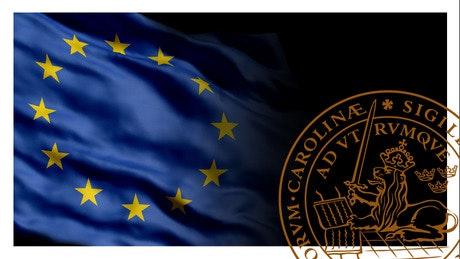MOOC List is learner-supported. When you buy through links on our site, we may earn an affiliate commission.

MOOC List is learner-supported. When you buy through links on our site, we may earn an affiliate commission.
It includes legal disciplines such as Intellectual Property law (IP law), Competition law and specific branches within Public law, such as public procurement and state aid.
At the end of this course, you will have a basic understanding of how to:
• Find and understand relevant laws and regulations governing the internal European Union market
• Protect and defend a company’s products, brands and inventions by obtaining and licensing trademarks and patents
• Create a competitive edge for a company and apply the basic principles of EU competition law
• Construct and present a persuasive legal argument
Syllabus and Format
Each course consists of a number of modules where one module represents about one week of work. A module includes a number of lectures and readings, and finishes with an assessment – a quiz or a peer graded assignment. The assessments are intended to encourage learning and ensure that you understand the material of the course. Participating in forum discussions is voluntary.
Course I - Understanding the Fundamentals
Module 1. Introduction
Module 2. Legal Method and Sources
Module 3. Constitutional Freedoms and Fundamental principles
Module 4. Freedom of Movement
Module 5. The External Dimension
Course II - Doing Business in Europe
Module 1. Making Business Transactions
Module 2. Establishing a Company
Module 3. Employing and Working in Europe
Module 4. Paying Taxes and Complying with Environmental Standards
Module 5. Case Clinic
Module 6. Resolving Cross-border Disputes
Course III - Competing in Europe
Module 1. Obtaining Trademarks
Module 2. Defending Patents
Module 3. Competition: Illegal Agreements
Module 4. Competition: Abuse of Dominance and Mergers
Module 5. Advocacy and Legal Writing
Module 6. Selling to the State and State Aid
Syllabus
WEEK 1
Trademarks as Essential Assets
The first module examines trademarks, one of the most valuable assets that a company actually has. It gives a brief description of the history of intellectual property law (IP) protection. The module considers the main sources of law, case law and pertinent trademark strategies. It also looks at how a proprietor can exercise their trademark rights in a useful way, successfully preventing a third party from using an identical or similar sign.
WEEK 2
Defending Patents
The second module examines the role patents play in business transactions. It examines strategies and advantages/disadvantages of patent protection. The module looks into the substantive rules regarding the requirements for patent protection and how to obtain a patent. It introduces strategies to capitalize and possibilities to license rights to third parties. Finally, it discusses potential ways to misuse a patent.
WEEK 3
Competition: Illegal Cooperation
The third module gives an overview of the European competition regime. Competition is a key element of an open market economy that stimulates European economic performance. The module describes the three core regulations pertinent to European competition law, including article 101 and 102 TFEU, as well as the European Merger Regulation. It considers how particular agreements or behaviour is anti-competitive and the four main aspects when establishing a breach of article 101 TFEU.
WEEK 4
Competition: Abuse of Dominance and Mergers
The module examines article 102 TFEU, which prohibits the abuse of a dominant position within the internal market. It also provides an overview of secondary law and EU merger regulations. The module provides a brief history of merger regulations in the EU, the substantive elements and finally, the procedural rules in merger cases. The last three lectures provides practical aspects of competition law, looking at how the Commission carries out an investigation, its powers to reach a conclusion and to implement sanctions.
WEEK 5
Legal Writing and Argumentation (optional)
The module includes a series of lectures on how to create a legal argument and present it to a court. It focuses on universally applicable advocacy strategies, without regard to the particular legal system in which the learner practice or study. It includes classical rhetoric while also considering practical aspects of constructing a persuasive written argument. It concludes with a lecture on structuring an oral argument and its delivery.
WEEK 6
Selling to the State and State Aid
The final module addresses some of the key interactions taking place between law, politics and economics. It considers the role Public Procurement law plays within the EU and the main legal framework. It outlines the State aid control system and the procedural elements of the State aid assessment.
MOOC List is learner-supported. When you buy through links on our site, we may earn an affiliate commission.
MOOC List is learner-supported. When you buy through links on our site, we may earn an affiliate commission.
